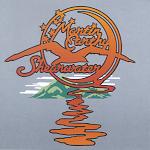> Martin Carthy > Records > Shearwater
Martin Carthy: Shearwater
 |
Shearwater Pegasus PEG 12 (LP, UK, 1972) |
 |
Produced by Terry Brown for September Productions Ltd;
Engineer: Jerry Boys
Musicians
Martin Carthy: vocals, guitar, dulcimer [1, 7];
Maddy Prior: vocals [10]
Tracks
LP Side 1
- I Was a Young Man (Roud 1572; G/D 7:1291) (2.46)
- Banks of Green Willow (Roud 172; Child 24; G/D 6:1225) (4.31)
- Handsome Polly-O (Roud 545; G/D 1:84) (2.32)
- Outlandish Knight (Roud 21; Child 4; G/D 2:225; Henry H163) (5.25)
- He Called for a Candle (Roud 269; Laws K43; G/D 7:1429; TYG 10) (2.49)
- John Blunt (Roud 115; Child 275; G/D 2:321) (3.26)
LP Side 2
- Lord Randall (Roud 10; Child 12; G/D 2:209; Henry H814) (4.35)
- William Taylor (Roud 158; Laws N11; G/D 1:169; Henry H213, H757) (3.43)
- Famous Flower of Serving Men (Roud 199; Child 106; G/D 1:163) (9.23)
- Betsy Bell and Mary Gray (Roud 237; Child 201; G/D 6:1257) (1.34)
CD bonus tracks
The Castle CD reissue has three bonus tracks from the BBC Radio 1 John Peel session recorded on 22 May 1972 at the Playhouse Theatre, Northumberland Avenue, London, and broadcast on 30 May 1972:
- The False Lover Won Back (Roud 201; Child 218; G/D 5:974) (4.12)
- King Henry (Roud 3867; Child 32) (5.42)
- Trimdon Grange (Roud 3189) (4.06)
All tracks trad. arr. Martin Carthy except
Track 13 Tommy Armstrong
Notes From the Mooncrest CD insert
Martin Carthy recorded Shearwater in 1971, just after leaving Steeleye Span for the first time. His work with that band at the start of their career has just been reissued on Mooncrest’s Please to See the King and Ten Man Mop or Mr Reservoir Butler Rides Again.
Over a career which is now approaching 30 years, Martin Carthy has maintained a solo recording career alongside his work as a duo with both Dave Swarbrick and John Kirkpatrick, and in several bands, including Steeleye Span, the Albion Band and Brass Monkey. His first solo album was released in 1965, and to date he has recorded at least a dozen albums on his own account, as well as working in theatre productions for both The National Theatre and the Royal Shakespeare Company. Today he is a member of the Watersons, both as a musician and a member by marriage of this celebrated British traditional folk music family.
His musical style has evolved remarkably over nearly three decades, and his guitar technique has become awesome, particularly in its rhythmic complexity, but each of his solo albums bears listening to in its own right. Shearwater is a musical snapshot of the performer as he was in 1971. It has a somewhat stark quality: the guitar playing is driving and powerful, the singing rather slow and deliberate in places. With hindsight, this could well have been due to the novelty of actually being able to hear his own voice again after singing in front of a folk/rock band. Most of the songs on his early albums are from traditional sources, although by the time of Shearwater several of them had different tunes put to old words by Carthy, and the text of the epic Famous Flower of Serving Men is substantially his own. In recent years he has discovered an impressive talent for writing songs about current issues, but songs that he first recorded 25 years ago can still re-appear in his repertoire. Conversely, a song (however popular) will be summarily dropped if he feels its performance is becoming in some way mechanical. He needs to totally immerse himself in a song every time he performs it.
The Songs
There are numerous stories and themes that crop up in the traditional songs of some widely differing cultures worldwide. Subject matter of this type has not necessarily originated from a single idea spread by travellers throughout the ages, but reflects the universal nature of human experience. Most human beings are presumably moved by much the same raw emotions passionate love, jealousy, greed, anger, the desire for revenge, remorse… Even though ‘civilised’ people may try to control their emotions, stories in which they are played out can exert great fascination. Latter-day equivalents of the leading characters in the great ballads still appear in local newspapers today: the enraged husband who thinks his wife is unfaithful, the lovers who wait for each other through years of separation, the woman who kills her own illegitimate child, the girl who prefers to die rather than submit to an arranged marriage with a man she hates, the incestuous and jealous brother, and so on. These days there don’t seem to be quite the astonishing vanity of vindictive and murderous mothers-in-law who featured in the old ballads, but the rest are still very much with us, even if they are not necessarily members of the aristocracy and their steeds are made in a Japanese factory and live in garages rather than stables these days.
Several of the songs on Shearwater possess this universal appeal/horrid fascination, like the tragic Lord Randall, who is poisoned by his lover, but dies so slowly that he can tell his mother about it and say exactly what revenge must be exacted, or the poor woman in Banks of Green Willow, who gets thrown overboard with her new-born baby by the captain, a victim to the belief that a female presence (let along such a blatantly feminine process as child-birth!) was such an ill omen for a sea voyage that she would be ditched at the first sign of bad weather. Outlandish Knight (Child #4) sounds like a more modern tale of a clever young woman outwitting a would-be thief and murderer, however a creature with impressive mythical credentials appears at the end in the shape of a bird that can talk intelligently and helps its mistress. A personal suspicion is that it was only turned into a less magical sounding parrot by more recent, more pragmatic singers! There are absolutely no frills in William Taylor—he jilts her, she disguises herself as a man to follow him, gets two pistols and shoots him. The End. Almost “Frankie & Johnny”-like in its brevity.
The subject of I Was a Young Man is more recognisably modern—the hen-pecked hero just wishes “Death, oh death, come take my wife”, rather than subjecting her to some lingering fate, and any potential violence in John Blunt is stopped short by the humour: the eponymous hero finds himself in a sort of rustic vulgar “Catch 22” situation.
By common consent, the finest piece on the album is Famous Flower of Serving Men. The plot (brace yourself!): a mother sends violent thugs to her daughter’s house to kill her husband and baby. The young woman digs their graves, buries them, dries her tears, cuts off her hair and dresses herself as a man. She goes to work at the King’s court, where the King falls in love with her although he thinks she is a man, so he makes her his chamberlain. The King goes hunting one day and is led deep into the forest, to the site of the graves, by a magical white hind. He is visited by a white dove who is the spirit of the murdered husband and tells him the whole story, whereupon the King rides home, swearing vengeance on the mother, and sweeps the Famous Flower of Serving Men into his arms, and has the mother taken prisoner and burned at the stake. No mention of happy ever afters. The song is utterly compelling, with its complex but hypnotic rhythm and the vivid images it inspires: “They left me naught to dig his grave but the bloody sword that slew my babe”—it could easily be the substance of a full length opera, a film, a classical ballet, and Shakespeare could have made a major play out of it. Carthy manages to convey all this immense drama and emotion in under ten minutes. A. L. ‘Bert’ Lloyd (one of the doyens of English folk music) apparently once said something about this: one shouldn’t be surprised at such a song being so many verses long, but that it should be so many verses short.
The music on this album is typical of Martin Carthy completely committed, avoiding hype and hating cant. His intensity of focus has proved useful to many friends over the years—one famous singer told me how, at a Festival many years ago, he had left the stage feeling depressed about his performance and that his music lacked direction, and wondering if there was any point in it all. When he mentioned this to Carthy, he was straightened out in a few words and reminded of what the most important things were. Martin Carthy also convinced me to sing naturally, and he is one of the few people who could have done such a thing. It is a rare and wonderful thing that a musician of such enduring quality should still be performing in local, accessible venues. Seek him out.
Maggie Holland and John Tobler, 1991

